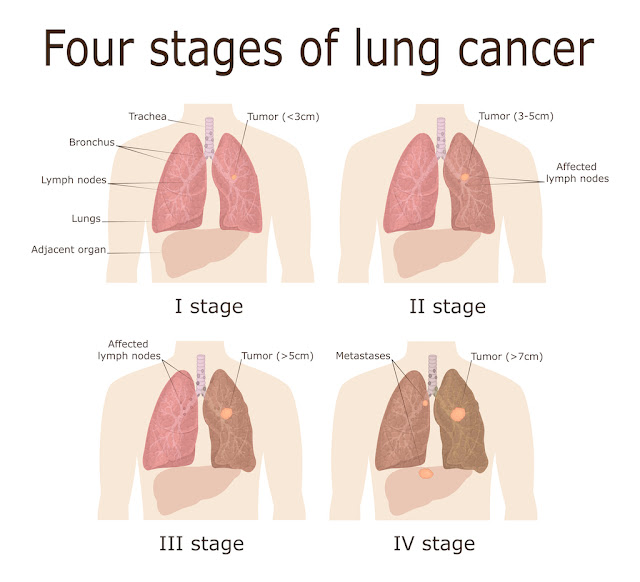Stage 4 cancer life expectancy with treatment:
Cancer is
a disease in which abnormal cells grow and divide uncontrollably, invading
nearby tissues and spreading to other parts of the body through the bloodstream
or lymphatic system. Stage 4 cancer refers to cancer that has spread from its
original location to distant parts of the body and is considered to be the most
advanced stage of cancer.
The life
expectancy for people with stage 4 cancer varies greatly depending on various
factors such as the type and location of the cancer, the person's age and
overall health, and the treatments received. In general, the life expectancy
for people with stage 4 cancer is lower compared to earlier stages of the
disease.
According
to the American Cancer Society, the five-year survival rate for people with
metastatic cancer is only about 5%. However, this statistic is not meant to
predict an individual's prognosis, as some people may live much longer than
five years after being diagnosed with stage 4 cancer. The length of survival
can vary greatly and depends on a variety of factors such as the person's
overall health, the type of cancer, and how well the cancer responds to
treatment.
The
treatment options for stage 4 cancer are mainly focused on extending the
person's life, managing symptoms, and improving the person's quality of life.
The treatment options may include surgery, radiation therapy, chemotherapy,
immunotherapy, and targeted therapy. The treatment plan will be tailored to the
individual's specific needs and may involve a combination of treatments.
It is
important for people with stage 4 cancer to work closely with their healthcare
team to determine the best treatment options for them. Regular monitoring and
follow-up care are also crucial in order to detect any changes in the cancer
and ensure that the person is receiving the best care possible.
In
addition to medical treatment, people with stage 4 cancer may benefit from
support services, such as counseling, support groups, and complementary
therapies, to help them cope with the emotional and physical effects of the
disease.
In
conclusion, the life expectancy for people with stage 4 cancer varies greatly
and depends on various factors. While the outlook for stage 4 cancer is often
poor, with the right combination of treatments, support, and care, people with
stage 4 cancer can continue to live meaningful and productive lives. It is
important for people with stage 4 cancer to have a strong support system and to
work closely with their healthcare team to determine the best treatment options
for them.
Stage 4 cancer symptoms:
Stage 4
cancer, also known as metastatic cancer, refers to a cancer that has spread
from its original location to distant parts of the body. When cancer cells
spread to other parts of the body, they can form new tumors in those locations,
which can cause new symptoms to develop.
The
symptoms of stage 4 cancer can vary greatly depending on the type and location
of the cancer, as well as the size and location of the metastases. Some common
symptoms of stage 4 cancer include:
- Pain: Cancer can cause pain in different parts of the body, such as the bones, chest, or back.
- Fatigue: People with stage 4 cancer may feel exhausted and have a low energy level.
- Weight loss: Cancer can cause a person to lose weight, sometimes due to decreased appetite or increased metabolism.
- Shortness of breath: Cancer that has spread to the lungs can cause shortness of breath and coughing.
- Abdominal discomfort: Cancer that has spread to the abdominal organs can cause bloating, constipation, and abdominal pain.
- Neurological symptoms: Cancer that has spread to the brain can cause headaches, seizures, confusion, and changes in vision or speech.
- Skin changes: Some types of cancer can cause skin changes, such as yellowing or darkening of the skin.
It is
important to note that not all people with stage 4 cancer will experience these
symptoms, and other symptoms may also be present.
If you
suspect that you may have stage 4 cancer, it is important to seek medical
attention as soon as possible. A healthcare professional will be able to
perform a thorough examination and may order tests such as imaging studies or
biopsies to determine the presence and extent of cancer.
In
conclusion, the symptoms of stage 4 cancer can vary greatly and depend on the
type and location of the cancer, as well as the size and location of the
metastases. If you suspect that you may have stage 4 cancer, it is important to
seek medical attention as soon as possible. Early detection and treatment can
improve outcomes and help to manage symptoms more effectively.








0 Comments